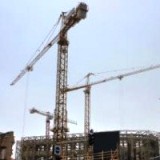
ACRI published a position paper along with The Arab Center for Alternative Planning, Massawa Center, Sikkuy – the Association for the Advancement of Civic Equality, Mizan Center, and Bimkom – Planners for Planning Rights on the Kaminitz Law.
Background of the Draft Law
On June 1, 2016, Government Resolution No. 1559[1], concerning stronger enforcement of the planning and construction laws, was adopted. The Law is based, as set forth in the opening to the Resolution, on a report by the “team dealing with the phenomenon of illegal construction” (the “Kaminitz Report”)[2]. Pursuant to the resolution, a directive was issued to the various Government entities, at the political and professional levels, to act in various ways, inter alia, by amending legislation for “stronger enforcement of the planning and construction laws and dealing with breaches and intrusions on public land” in the State, particularly in the Arab towns/villages.
Accordingly, on June 30, 2016, a memo on the Planning and Construction Law was published, that contained a number of proposals to amend existing laws, which became, on August 1, 2016, the government Draft Law: Draft Planning & Construction Law (Amendment No. 109) 5776-2016[3] (hereinafter – the “Proposal” or the “Kaminitz Law“).
The purpose of the proposed amendments is, as aforesaid, to intensify enforcement and penalization of building offenses. To realize this purpose it is proposed, inter alia, to restrict the discretion of the court considering the enforcement of construction offenses; to expand the powers and discretional boundaries of administrative entities, especially national planning entities, and planning enforcement entities, in connection with the enforcement of planning laws and dealing with construction without permit; increasing the amounts of fines and lengthening prison terms for construction offenses, as well as expanding the circle of penalization for these offenses.
Although the proposed amendments have implications on the enforcement of planning laws throughout the country, as set forth in the explanation to the Amendment, however one should not ignore their far-reaching effects on Arab citizens, and especially one should not ignore the context in which they were submitted: Government Resolution 1559 and the government’s intention to fight the phenomenon of building without permit in Arab society.
In light of the aforesaid, the above organizations hereby present their position concerning the Draft Law, that will focus on the implications of the proposed amendments on the Arab citizens of the State and the Arab local authorities, and the connection between the need to find appropriate and proper solutions for the many years of planning problems in Arab towns and villages and the enforcement of the planning laws in those places.
[1] Government Resolution No. 1559.
[2] The Kaminitz Report
[3] Draft Planning & Construction Law (Amendment No. 109), 5776-2016 (the “Kaminitz Law”)
To read the full position paper, click here







